This blog is an artefact of all the Information Learning Technology (ILT) projects that were undertaken at Bolton College during the course of my PhD journey.
Please email me if you have any questions regarding site content.
.
This blog is an artefact of all the Information Learning Technology (ILT) projects that were undertaken at Bolton College during the course of my PhD journey.
Please email me if you have any questions regarding site content.
The ubiquitous nature of GenAi chatbots into an educational setting such as Bolton College represents a significant shift in how information (which encompasses teaching, learning and assessment materials) are organised, distributed, accessed and managed. While advocates of GenAi chatbots highlight the efficiencies that can be derived from using them, and the many gains that could be derived for teaching, learning and assessment, others argue that a deeper critical analysis is required to interrogate the structural and epistemological shifts that such a transition entails.
This section of the article adopts a critical realist perspective as it explores the complex questions that arise when examining the introduction of a new GenAi chatbot platform into an education setting; and the first, second and third order consequences of implementing at an institution such as Bolton College.
A critical realism perspective helps us to examine the social, cultural, organisational, and technological contexts that shape the emergence and operation of the chatbot platform. And critical realism gives us the opportunity to explore the deeper, often unobservable mechanisms and structures that shape the design, development, implementation, use and impact of an AiED service. When viewing the project through a critical realist lens, it enables the narrative to move beyond a simple technological narrative, and towards an analysis of causal mechanisms and structures that shape an AIED service within an education setting like Bolton College. The design, production, use and management of the chatbot platform is informed by new and emerging technologies, but also by the social, cultural and pedagogical structures that could influence the adoption and use of these technologies. This includes institutional policies, cultural norms, stakeholder beliefs, and the day-to-day operational pressures that teams face when managing student facing services or managing aspects of teaching, learning and assessment.
As colleagues and students at Bolton College make greater use of GenAi chatbots and GenAi feedback on FirstPass, a platform which supports students and teachers with the formative assessment of open-ended questions, we will be better placed to assess the design, development, use and governance of this service. It also places the College in a better position to address the many technical and pedagogical challenges that accompany the design and use of GenAi services within an education setting. On the technical front, they include scaling the use of conversational services, tempering operational costs, ensuring that they are safe to use and more. With regard to supporting learning, the challenges include academic integrity, alogorithmic authority or the friction that arises as older norms and practices meet the new. If these challenges can be addressed through a collaborative, participatory and co-design process, there is every chance that a further education college like Bolton can offer all its students and employees access to services that make use of generative Ai chatbots; especially if it can take advantage of the affordances that arise through the use of open-source large language models.
Bolton College is pleased to announce that it recently received an offer of grant funding from the Ufi VocTech Trust for the campus chatbot project. We look forward to sharing more once the project gets underway.
Bolton College’s Ada service was launched in April 2017. Over the last 12 months, generative Ai has had a significant impact on how we are approaching the next phase of its development. This article explores how Ada will evolve from a rule-based model towards a data driven approach, and what this means for the design, use and governance of the Ada service as a campus chatbot and digital assistant for students, teachers and campus support teams at Bolton College.

In a previous article I described the reasons for establishing a national text labelling and annotation platform for the education sector. The basic premise for the idea is a simple one. Firstly, establish a national text labelling and annotation platform for the education sector, whose capabilities expand over a period of time. Secondly, build a corpus of labelled and annotated text that is specific to the education sector and to all points on the student life cycle. And thirdly, use this large body of text to create AIED products and services to meet the needs of students, teachers, campus support teams and other stakeholders within the education sector. All of these endeavours will be underpinned by appropriate ethical and governance arrangements, and a sustainable business model.
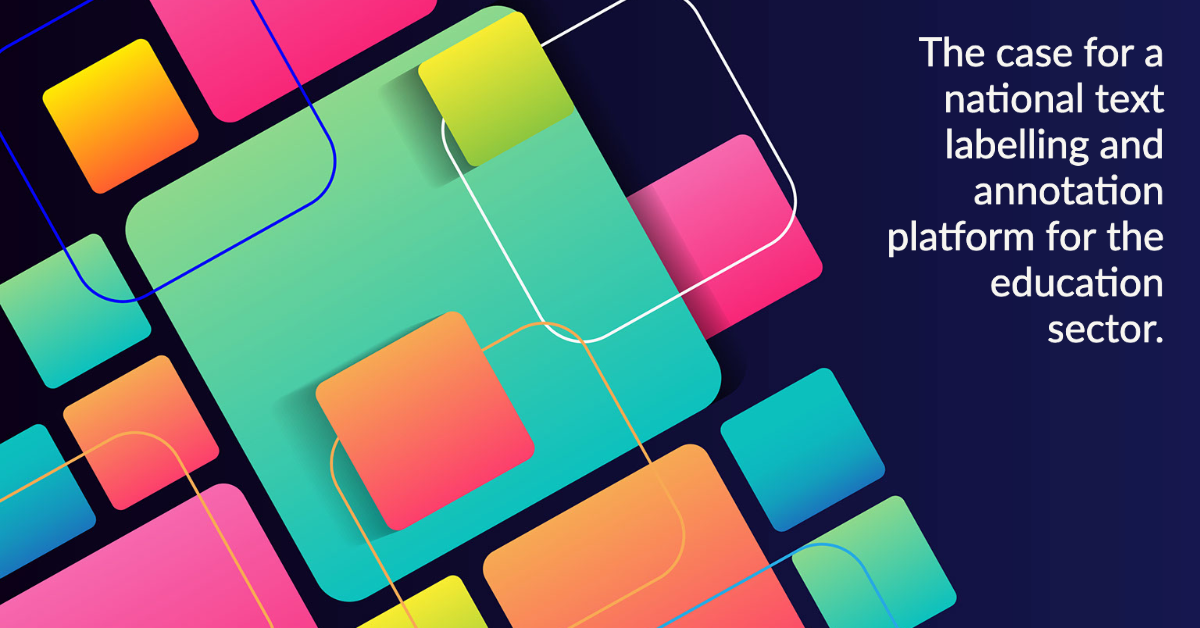
It's October 2022 and subject specialist teachers and data labellers in various education settings have started to set up and train subject topic classifiers on Bolton College's FirstPass platform. Once trained and tested the classifiers will be used to support the computer mediation of open-ended questions as part of formative assessment practices at Bolton College and in other further education colleges within the UK. This brief article details how subject topic classifiers are set up and trained within FirstPass.

The data labelling role is common in industries such as finance, insurance, mapping and medicine. These roles support the classification of financial information, insurance claims, buildings, vehicles, medical records, clinical images and more. However, within the education sector data labelling roles are not yet prevalent. In this article I focus on data labelling roles that support text labelling and text annotation within the education sector. Please note that there are concerns regarding the labelling of education datasets that pertain to postal codes, gender, race, age, learning support needs, facial images or emotions and I have expressed those in an earlier article.

A large number of opportunities arise if a national text labelling and annotation service is established for the education sector. It can be used to address a wide range of problems that are encountered by individuals and institutions who operate within the field. In this short article I explore the rationale for such a service.

In this short article I present five reasons for establishing a national text labelling and annotation service. The list is not meant to be definitive and the rationale for each reason requires further work.
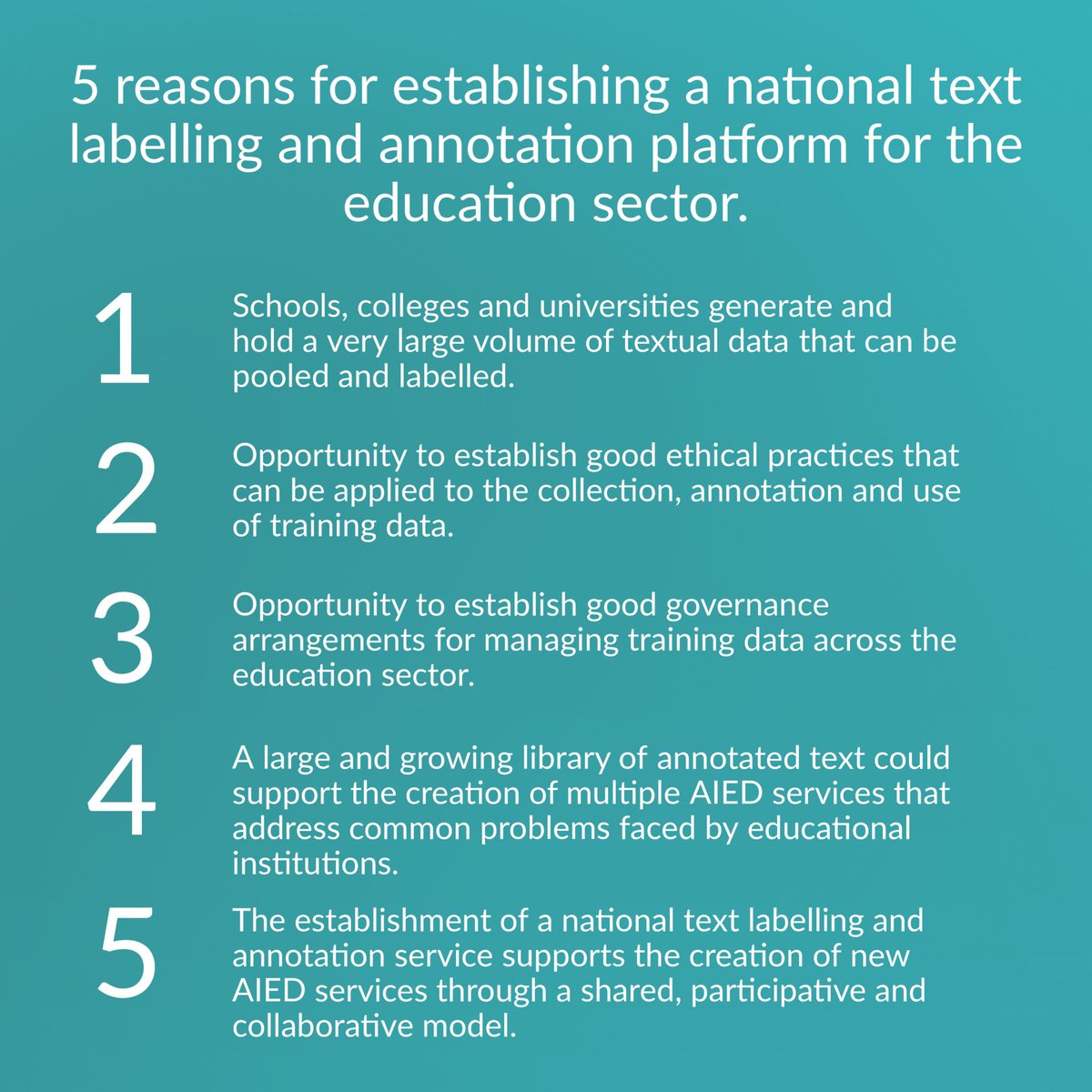
Schools, colleges and universities generate, process and store large repositories of text. This brief article explores the opportunities that arise when this large trove of text is organised, labelled and then made available to the wider sector. I will describe three use cases that emerge from a text annotation or labelling service; such as Bolton College's FirstPass platform and the affordances that these may bring to the wider education sector. And lastly, I will present a case for establishing a national data labelling and text annotation service for the education sector.
I have presented five reasons for establishing a national text labelling and annotation service. This list is not meant to be definitive and the rationale for each reason requires further work.

Schools, colleges and universities generate, process and store large repositories of text. This brief article explores the opportunities that arise when this large trove of text is organised, labelled and then made available to the wider sector. I will describe three use cases that emerge from a text annotation or labelling service; such as Bolton College's FirstPass platform and the affordances that these may bring to the wider education sector. And lastly, I will present a case for establishing a national data labelling and text annotation service for the education sector.
For nearly a century analogue machines and digital computers have been used by teachers to help mediate the delivery and assessment of closed questions. Student responses to yes/no questions, multiple choice questions or drag and drop activities can be processed by computers because they observe two possible states; has the student attempted a question; and has the student correctly answered that question. In 2021/22 teachers will have the opportunity to pose open-ended questions to their students. In this situation, the computer is able to process an infinite number of possible states as the student responds using free form text. Bolton College's FirstPass platform is the channel which allows for the formative assessment of open-ended questions. In doing so, it radically shifts how formative assessment is conducted through the medium of our networked devices. The following video provides a short overview of FirstPass and the platform is able to assess and analyse free-form text using natural language classification.
In recent years, the research and development work that has been underway at Bolton College has led to the creation of a number of AIED products and services; notably Ada, the College's campus digital assistant for students, teachers and campus support teams; and FirstPass which offers real-time feedback to students as they respond to open-ended questions. In time, other campus services such as Signal (the College's communications platform), Moodle, student report cards, adaptive online tutorials and more will start to assimilate AIED services to enhance the offer to our students. The assets that are developed from these services will invariably cascade to other parts of the campus and to the student life cycle as a whole. If this trend continues, one can postulate that over a period of time, cognitive computing will come to pervade every digital service that is present in our campuses and it will be present in all digital services yet to come.
FirstPass is being developed by Bolton College to support students and teachers with the formative assessment of open-ended questions. The service affords teachers the opportunity to move away from traditional closed questioning techniques which have been so dominant in the field of computer mediated assessment for many decades. Whilst the project team at Bolton College is primarily focused on the development of FirstPass to support the formative assessment of open-ended questions, there are other potential use cases for the FirstPass service; especially as it develops as a modular platform. In this short article I would like to take the opportunity to explore some of these use cases.
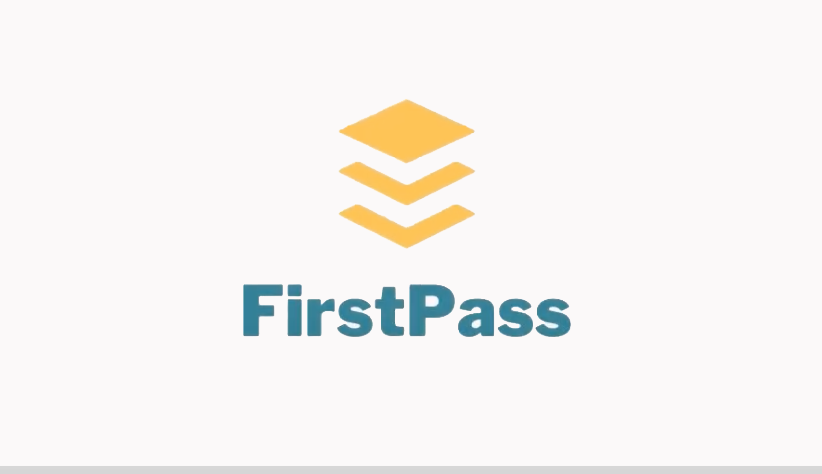
FirstPass is being developed by Bolton College to support students and teachers with the formative assessment of open-ended questions. A couple of years ago, colleagues at Bolton College embarked on a tentative journey to discover if a computer could be trained to support teachers with the formative assessment of open-ended questions; and if real-time feedback improved the quality of student work when responding to such questions. We have discovered that if we make use of natural language classification, natural language understanding and other tools a computer can indeed be taught to analyse and assess responses to an open-ended question. It is also possible to offer real-time textual and graphical feedback to students as they respond to the questions set by their teachers.
The emergence of this new formative assessment tool enables teachers to make use of a richer medium for assessing their students' work. Traditionally, online formative assessment activities are undertaken using closed questioning techniques such as yes/no questions, multiple-choice questions or drag-and-drop activities. Whilst valuable, this is a rather narrow way to undertake formative assessment. Our solution enables teachers to pose open-ended questions which can be automatically analysed and assessed by a computer. The ability to offer real-time feedback means that students can review and amend their answers before submitting them to their teachers for final review.
Over the last three years colleagues at Bolton College have been experimenting with adaptive learning. Our work has explored the affordances that arise when we take advantage of the wider campus dataset to inform computer mediated teaching, learning and assessment; particularly through the use of online tutorials within Moodle, the College's learning management system. We have paid particular attention to how adaptive learning/hypermedia makes use of the campus student dataset to deliver contextualised online learning and assessment materials to students.
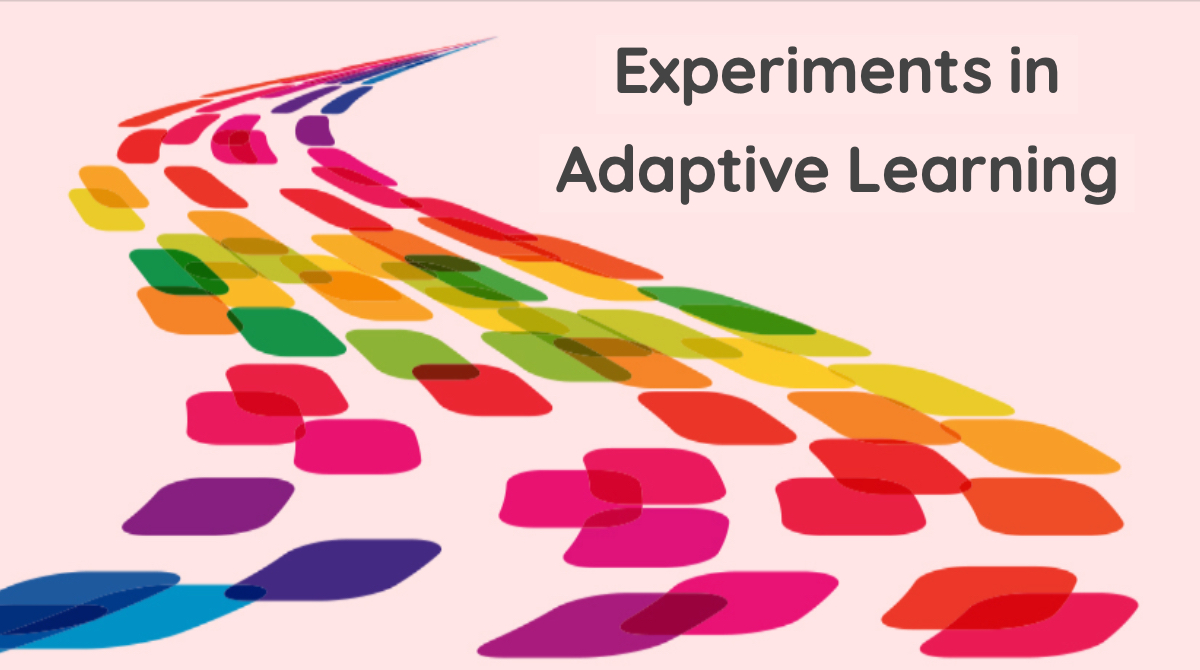
The ability to support subject specific questions from students is a key trait of a campus digital assistant. The Ask Ada button was first introduced to Bolton College's suite of online tutorials over 2 years ago so students could pose questions to Ada about the topics or key words that they discovered whilst they were going through their online tutorials. The learning technology team at the College recently updated the service so that it could accommodate for a growing number of questions across multiple subject domains; and to do so at scale for students at Bolton College and elsewhere. Here is a short demo of the Ask Ada button within an online tutorial:
The ability to solve the myriad of day-to-day problems that are encountered on our campuses is getting harder and this is exacerbated by the lack of time to solve these problems. So the level of urgency rises. The coupling of rising complexity and urgency all too often means that students, teachers and support teams are finding it harder to make informed decisions to support their studies or work. One of the factors that contributes to complexity is the growing volume of data that permeates through our education institutions. This is especially true if we see every facet of a campus as entities that either produce, manipulate or consume data. The traditional tools that are used to manage data such as management information systems, CRM systems, business intelligence systems, learning management systems and data dashboards all too often fall short. In many cases, they exacerbate the problems that are associated with complexity and urgency. This problem was noted during the 1950s by Norbert Wiener who stated that whilst communication mechanisms do become more efficient, they are subject to increasing levels of entropy.
Wiener also stated that external agents could be introduced to control entropy. Campus digital assistants can be classed as one of these external agents; an agent that can be used to mitigate against complexity and urgency. Mark Weiser and John Seely Brown later coined the term calm technology to describe the nature of these services.

In this short article I would like to explore a near future where every student and teacher in the UK is supported by a campus digital assistant. In this near future, the campus digital assistant is connected to all key datasets and services that are utilised by students, teachers and support teams. And in this near future, the campus digital assistant is leveraged to support every facet that makes up the student-life-cycle. If this near future is realised, the design, management, delivery and the use of day-to-day services on the campus is redefined.
The thoughts that lie at the heart of this change date back to the 1950s and 1960s. Norbert Wiener (1950), the founder of Cybernetics wrote that "we ordinarily think of communication and language as being directed from person to person. However, it is quite possible for a person to talk to a machine, a machine to a person, and a machine to a machine.” A decade later, Douglas Engelbart (1962) wrote that "users do not operate the computer. They communicate with it to accomplish a task. Thus we are creating a new arena of human action: communication with machines rather than operation of machines." The way students and teachers engage with digital services through the use of natural language is the hallmark of the campus digital assistant.
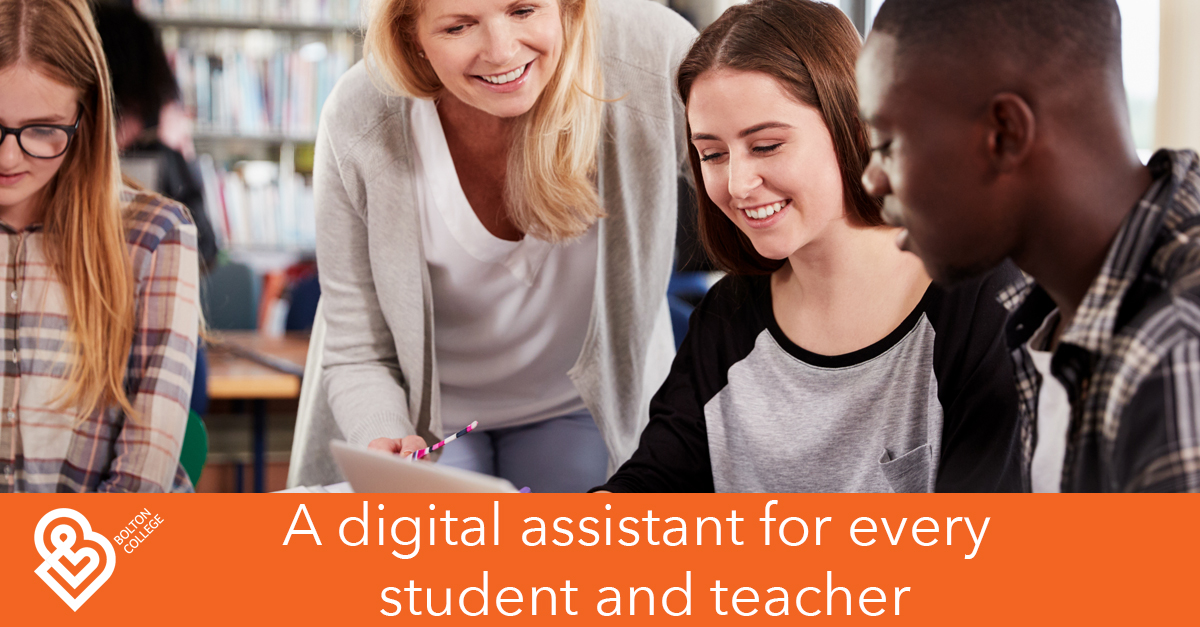
At the start of the last academic year, colleagues at Bolton College embarked on a tentative journey to discover if a computer could be trained to support teachers to assess student responses to an open-ended question; and if real-time feedback improved the quality of student work when responding to such a question. We have discovered that if we make use of natural language classification, natural language understanding and other tools a computer can indeed be taught to analyse and assess responses to an open-ended question. It is also possible to offer textual and graphical real-time feedback to students. Our work also enables teachers to create multiple classification models that can be used to support the formative assessment of numerous open-ended questions.
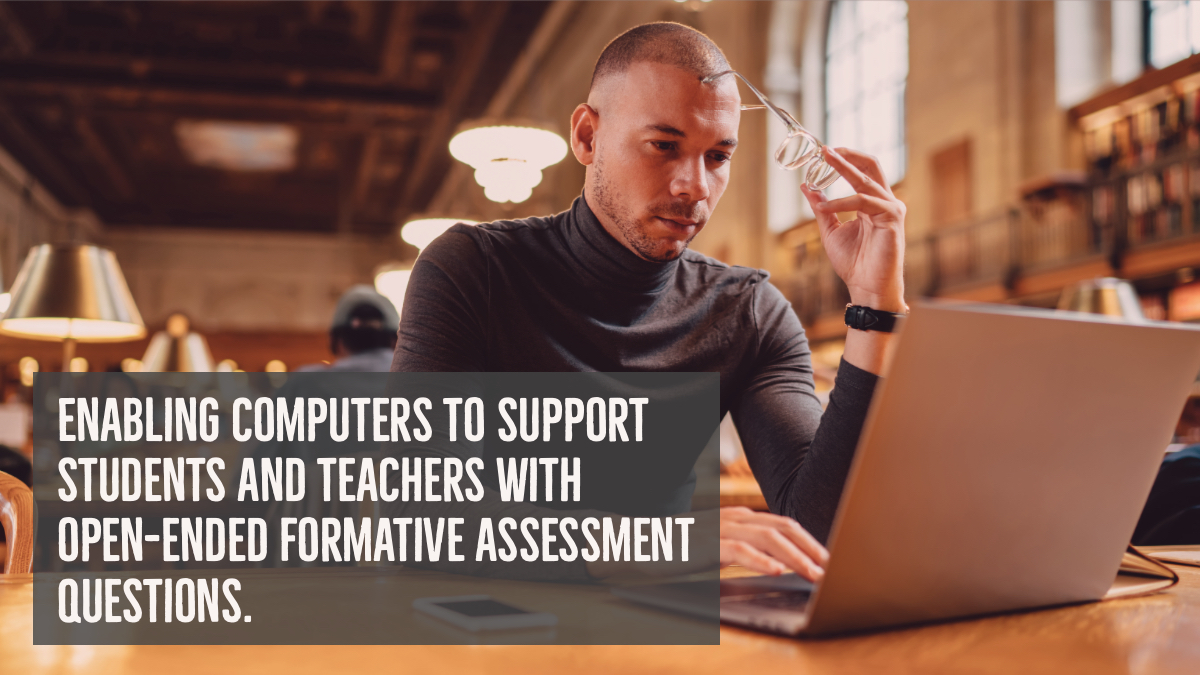
As campus digital assistants evolve they will support students, teachers and campus support teams with a wide variety of cognitive tasks and activities. If campus digital assistants are seen as a distinct EdTech category or platform; they have the capacity to undertake an endless number of cognitive tasks on behalf of everyone in a school, college or university setting.
In many cases the technical solutions to support the expanding capabilities of campus digital assistants are already in place. We only have to look to tried and tested techniques; such as business or robotic process automation which enable contextualised information, advice and guidance to be presented to individuals around the campus. For example, the campus digital assistant can present timely nudges to individual students and teachers about forthcoming assignment hand-in dates, exam dates and times, work placement details, appointments or events around the campus; and campus digital assistants are able to respond contextually to on-demand enquiries from everyone at the institution and across the entire student-life-cycle. The ability to respond contextually in this fashion is welcomed; especially for routine day-to-day tasks that previously required alot of time and effort to complete.
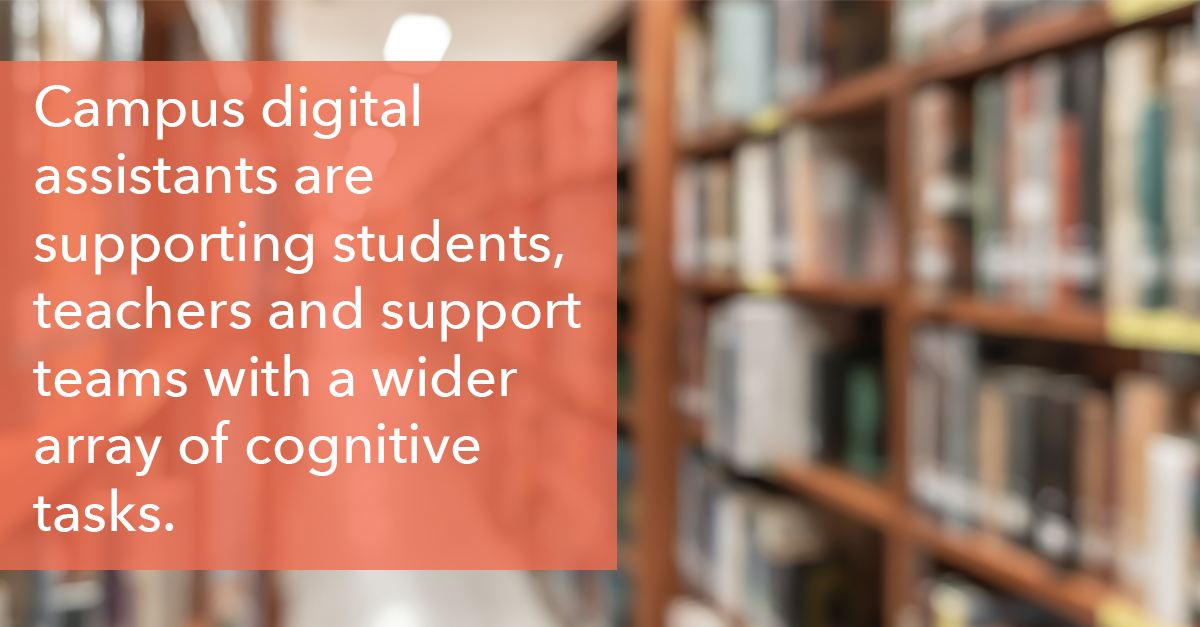
The introduction of campus digital assistants in our schools, colleges and universities means that they are likely to touch every facet of campus life. Their ability to impact on the design and delivery of all education services means that digital assistants should be treated as a distinct EdTech category. The nature of EdTech categories means that they are broad. This enables EdTech companies to design multiple products and services that underpin the behaviour and capabilities of their respective campus digital assistants.

As a growing number of schools, colleges and universities start to offer a campus chatbot or a digital assistant to their students, teachers and support teams I thought it would be a good opportunity to describe the key characteristics or traits of these services. The following list is not meant to be exhaustive but I hope that it serves as a useful prompt sheet for colleagues in other campuses.
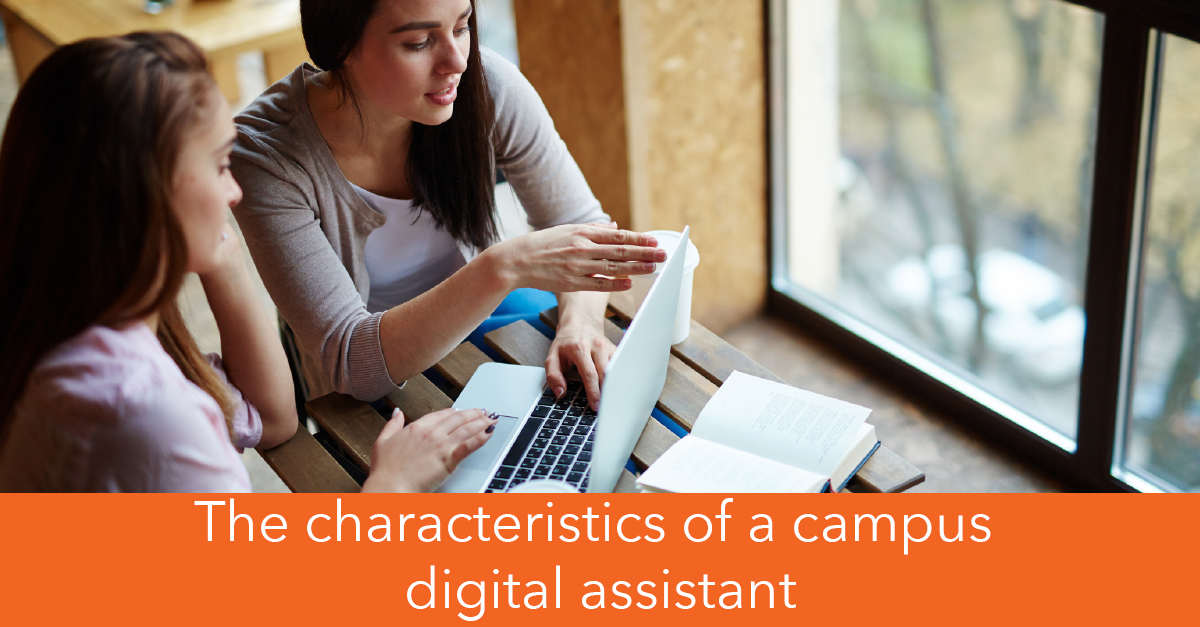
If every student in our schools, colleges and universities had access to a lifelong digital assistant how would they engage with education services? And if every teacher and campus administrator had access to a digital assistant what would it mean for the design, delivery and management of education services? Let's examine what campus services would look like if every student and teacher had access to a digital assistant.

When my fellow colleagues at Bolton College started to develop the Ada chatbot service we knew that she would eventually evolve into a campus digital assistant. The following text summarises the four broad stages that Ada and her contemporaries will journey through before they exhibit the traits of a campus digital assistant. The text also highlights a number of challenges that need to be addressed along the way.
When colleagues at Bolton College started to develop the chatbot service one of the early milestones that was reached was the chatbot's ability to call back your name when you used the service. This was significant on a number of levels. Firstly, if the service could identify who you were it was also possible for it to garner a much wider spread of data about you within the context of you being a student or a teacher at the College. Secondly, if information could be combined and woven together, the chatbot could also start to behave contextually; adapting its behaviour to suit the needs of the student, and to the needs of the teachers and support teams around that student. And thirdly; and most significantly, once the service has context there are endless opportunities for the service to develop traits that are exhibited by a digital assistant. These traits also enable the service to acquire and apply its knowledge to support students and teachers across multiple domains within the wider campus. This short article explores the importance of context and how it can be leveraged to build an engaging digital assistant for an education campus.
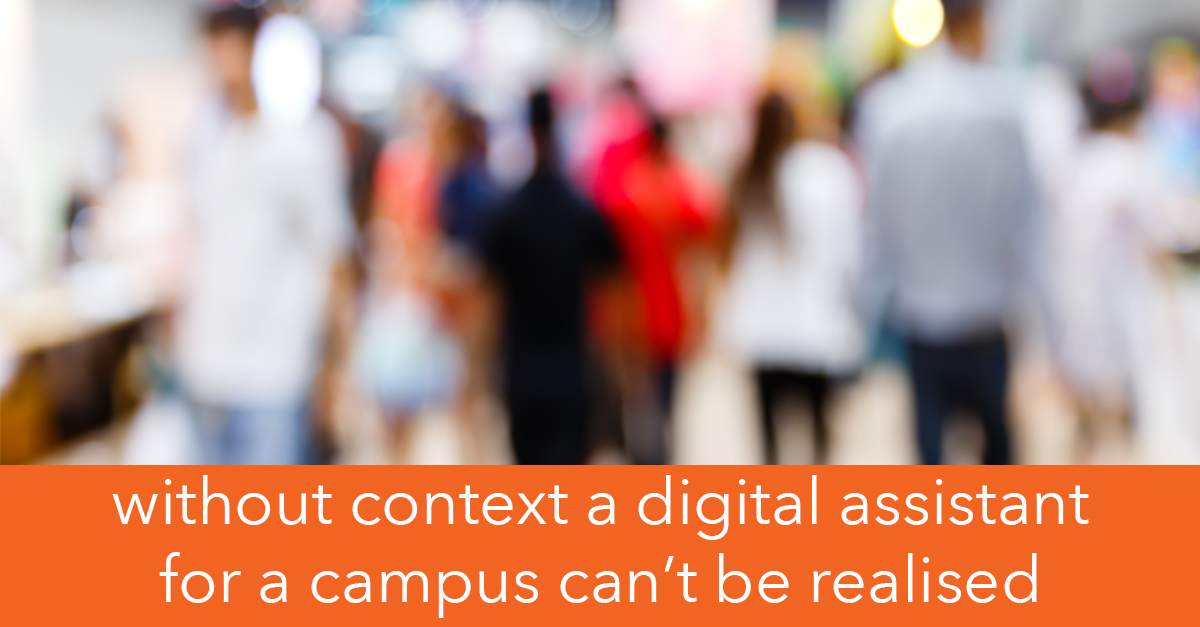
If every teacher had access to a digital assistant what would it mean for the profession? I ask this question because at this juncture a number of technologies are beginning to be combined to deliver the first generation of digital assistants to teachers. This is proving to be possible because schools, colleges and universities have large repositories of data, they make use of numerous online services were data is collected and used to support teaching, learning and assessment; robotic process automation is becoming commonplace; there is a growing number of platform providers that offer cognitive services that utilise natural language and machine learning; and end user devices are enabling the use of conversational services.
Once these services are combined teachers will simply converse with their digital assistants to garner insights to support their day-to-day work. The presentation of information will be contextualised to the teacher who makes the enquiry. Since the digital assistant is context aware, it can also offer timely information to the teacher in advance of being asked. As these services are connected to all key online services and datasets across the campus they will also carry out tasks on behalf of the teacher. These tasks will include the authoring of student report cards, arranging meetings with students, colleagues or parents; answering emails; compiling and distributing teaching, learning and assessment materials on the institution's adaptive learning environment and even the marking of student work.

Chatbots or digital assistants will soon be embedded into all online services that are used by our students, teachers and support teams. Over the last two years at Bolton College we have seen how effective they are as they help our students to gather on demand information about the College and its services; and how they are able to deliver information that is contextualised to the person making the enquiry. Overtime, they will support numerous workflows and they will also support individuals to carry out day-to-day tasks around the campus.
Students and teachers in a typical campus utilise numerous online services. This means that end users could be presented with multiple chatbots or digital assistants; especially if these services are managed by different vendors. If this is the case, a student's interaction with an individual chatbot could be limited to the online service that they are currently engaged with. In the worse case scenario, a student will have to open the institution's learning management system to converse with the LMS chatbot about forthcoming assignments or tutorial topics; and the student will have to engage with the library chatbot or digital assistant to renew book loans. This invariably leads to a fragmented chatbot service. The same holds true for all the services that teachers and support teams use.
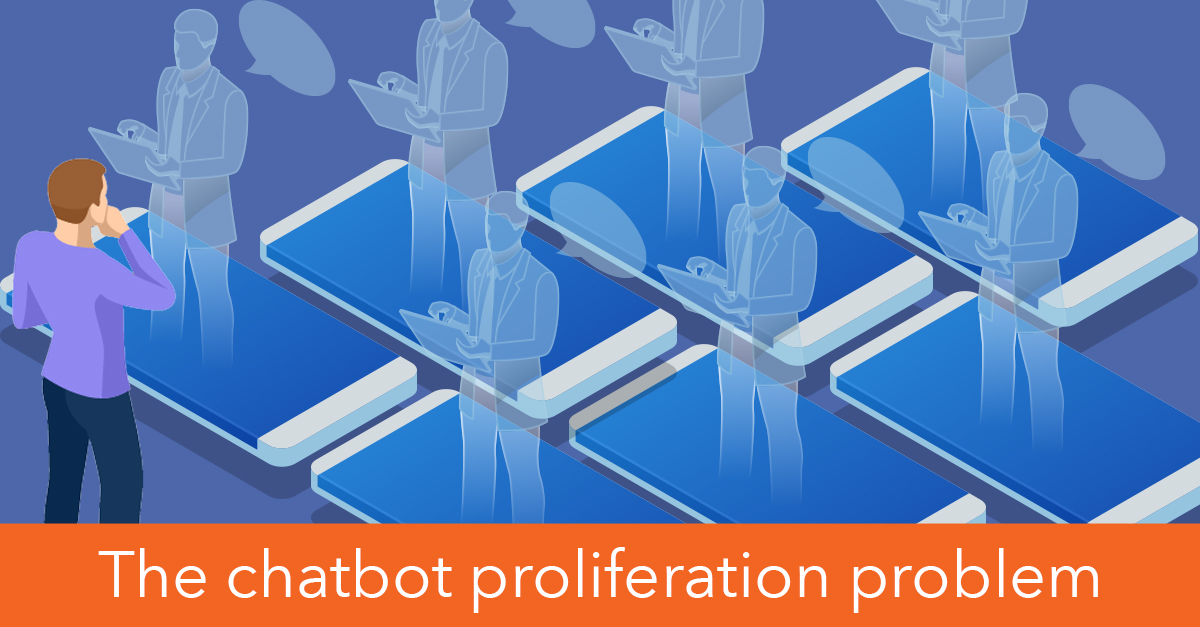
The ability to solve the myriad of day-to-day problems that are encountered on our campuses is getting harder and this is exacerbated by the lack of time to solve these problems. So the level of urgency rises. The coupling of rising complexity and urgency all too often means that teachers, support teams and managers are under huge pressure to maintain services at a high level of quality.
One of the factors that contributes to complexity is the growing volume of data that permeates through our education institutions. This is especially true if we see every facet of a campus as entities that either produce, consume or manipulate data. The traditional tools that are used to manage data such as management information systems, CRM systems, business intelligence systems and data dashboards all too often fall short. In many cases, they exacerbate the problems that are associated with complexity and urgency. However, the emergence of new tools such as cognitive platforms and the services that leverage natural language processing, understanding, classification and generation look as if they can be used to mitigate complexity and urgency.

Voice First offer schools, colleges and universities an exciting opportunity to deliver their services through ambient devices such as Amazon's Echo smart speakers. When students are able to authenticate to these devices they can illicit information that is personalised and contextualised to them. Imagine a student at home who turns towards her echo device and asks about this morning's schedule of classes; the date, time and location of a forthcoming exam or she may use the service to send a message to one of her tutors.
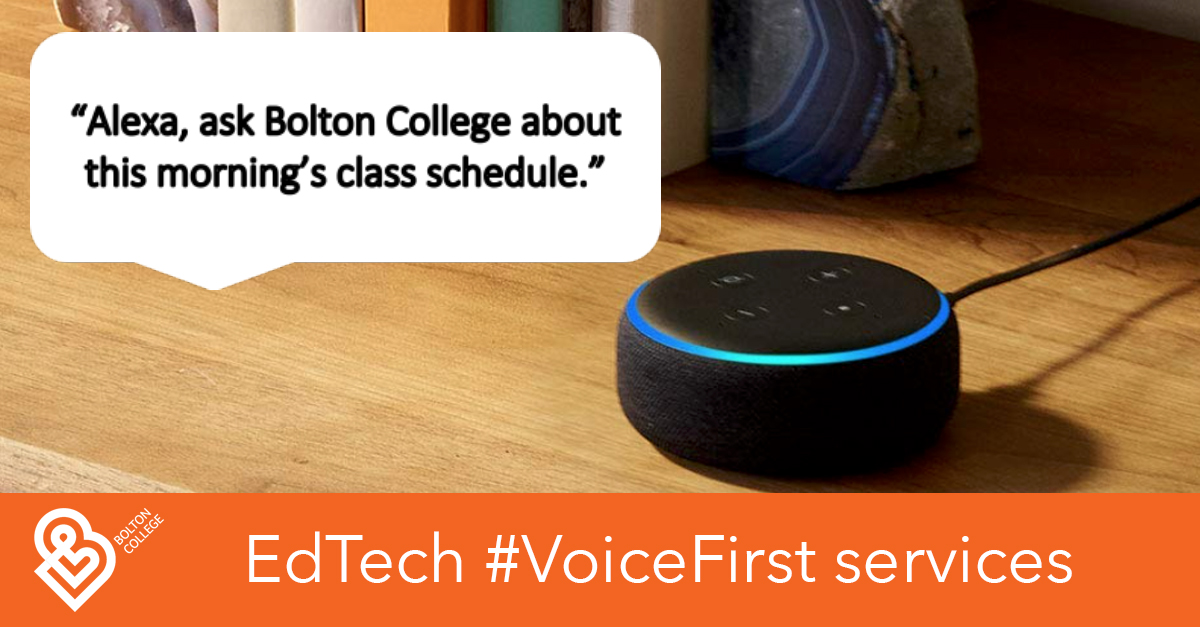
In this short article I would like to explore the modality of chatbots or cognitive assistants. At the present moment in time there is a wide range of platforms for schools, colleges and universities to choose from. A chatbot could be deployed on a traditional website, a messenging platform, as an app on a smartphone or it can be accessed via a smart speaker. The choices made by the educational institution will have a bearing on the way students, teachers and support teams engage with the service and what can be garnered from the chosen medium. Let's examine the choices made by colleagues at Bolton College.
How has Bolton College deployed its chatbot service?
The students at Bolton College can access the Ada service via their student home page as a webchat window. When a student types a question the Ada service is able to present a rich set of information back to the student. The choice of medium was important for the College because much of the information on the campus is a rich composite of images, links and videos. Students can also access the service via any web browser on their mobile devices. The following image shows the Ada webchat window on Bolton College's student home page.

As we begin to use chatbots to support individuals across more knowledge domains we soon realise that they need to respond to individuals contextually. Context is important for a variety of reasons. The student who asks about the deadline for a forthcoming assignment needs to know more than just the date and time for submitting the assignment. If the chatbot is aware that the student is seeking to progress on to university after her studies and her grade profile is slightly below target, we should expect the chatbot to advise the student accordingly. In this instance, the chatbot should advise the student about the grade that she needs to secure if she is to maintain her target grade average; or it may advise scheduling a meeting with the course tutor before the submission date.
A chatbots ability to assimilate a large volume of information gives it properties that are useful to students, teachers and support teams; especially when it behaves contextually. The service can nudge, prompt and guide individuals as they engage with services on the campus, and it can support, advise and guide individuals as they carry out day-to-day tasks and activities. This is possible because the chatbot asks itself the following questions when supporting a student: what is the student asking, besides giving the answer is there anything else that I need to be aware of, if so what is it, does it apply to this particular context, how should I respond the student, have previous responses resulted in positive outcomes, which response should I offer, do I need to inform teachers and support teams about the question and my response to that question and so on.

A growing number of education campuses like Bolton College are using chatbots to help their students, teachers and support teams. As these services mature they will be put to use across various contexts. In this article I would like to highlight five use cases for a campus chatbot; as well as providing links to institutions who have already deployed a chatbot on their campuses.

If you create, consume or manage online learning materials on a learning management system (LMS); have you considered how a chatbot or a voice first service could be used to supplement or enhance the library of online learning materials that is stored on your LMS? In this short article, I would like to explore how a school, college or university could start to leverage the capabilities of a chatbot to support distributed learning.

This short article explores the current and potential use of voice first services on the campus; otherwise known as conversational services or chatbots. In Bolton College's case, students simply have to talk to their Ada chatbot to illicit information about their studies and College services.
When voice first services enter the education space they will initially be voice or chatbot overlays on existing services such as the institution's external and internal facing websites; their learning management systems and on back office services. As voice first services mature students, teachers and support teams will spend less time directly interacting with websites or applications to support their day-to-day work or activities on the campus. They simply have to engage in dialogue with their personal cognitive assistant to garner access to information, insights and services. For example, students at Bolton College simply have to ask Ada for their class timetable. The need to engage directly with services that underly that enquiry and many others besides will lessen overtime. After all, who will want to open a website, software application or mobile app, login to the service and then search for information or undertake a transaction if the same can be done in less time and with less cognitive load? (Brian Roemmele on the Voice First Revolution)
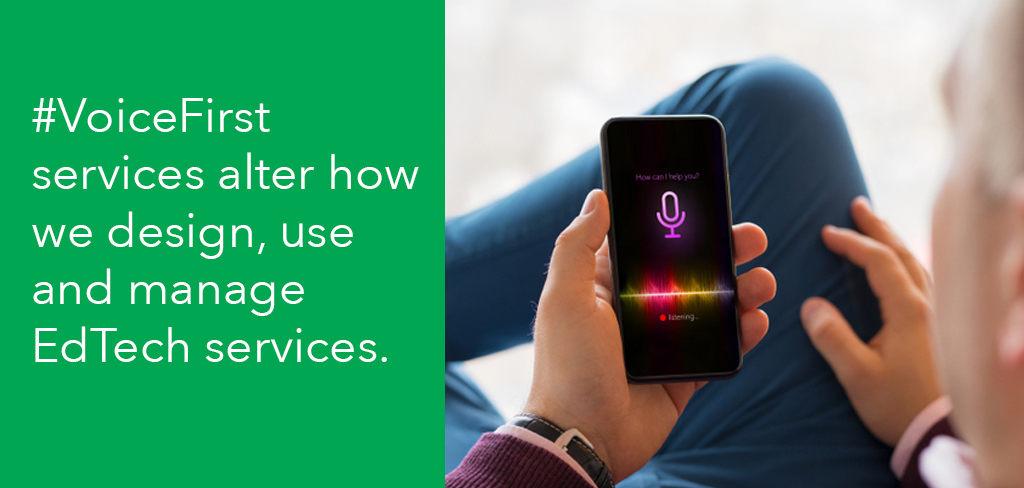
A chatbot's ability to respond to a large volume of questions and at all hours of the day is welcomed. Nevertheless, we need to remember that these early wins represent the start of a much longer evolutionary journey in the use of cognitive services on the campus. This article seeks to explore the evolution of the campus chatbot and other cognitive services which are designed to support students, teachers and support teams.

One of the most intriguing and promising aspects of using chatbots and cognitive services is their potential to support three facets of teaching, learning and assessment (TLA); namely its creation, consumption and management.
Bolton College's Ada chatbot has been designed and implemented to serve as a general purpose chatbot for students, teachers and support teams. Individuals who engage with the service can use the service to garner information and insights on multiple services and as the service matures they will be able to carry out numerous tasks and activities through the chatbot.
As the Ada service develops, colleagues across the campus are acquiring a growing understanding and appreciation that student facing services are enhanced when they are coupled with one or more cognitive services; and they add value to the overall student experience. As these services become more capable; and as our understanding of cognitive services on the campus develops we hope to embed the Ada service into a wider range of student facing services. In this short article, I would like to provide a brief overview regarding the current status of Bolton College's Ada service across a suite of online services that are offered to its students.
The following video provides an update on the Ada service and it hints at some of our plans for the service during the next academic year.
In this short article I would like to explore how schools, colleges and universities can start to embed prior knowledge into their campus bots. Prior knowledge is important for the development of cognitive services on the campus because without that knowledge these services will be unable to act on behalf of the institution to address the day-to-day needs of students and colleagues. At a simple level prior knowledge enables services to present answers to all the frequently asked questions that are posed by everyone on the campus. At an intermediate level prior knowledge enables services to read, analyse, assess and act on the information that is stored across all the datasets within the institution and beyond. At an advanced level prior knowledge enables services to assimilate and learn from the environment around them. Let’s explore each of these statements in more detail.
The use of algorithms to support our day-to-day affairs has been with us for many years. We are influenced by their behaviour whenever we use the sat-nav in our cars, whenever we browse or shop online or whenever we apply for a loan or insurance cover. However, the extensive use of algorithms to manage the myriad of services within a school, college or university is still in its infancy; especially when it comes to the management of support services for students and employees on the campus and the management of teaching, learning and assessment.
This article asks how algorithms could manifest themselves within an education setting. Many of the routine tasks that are undertaken by students, teachers and support teams and the decisions that they make may be managed algorithmically.
If you started your vocation within the education sector some 30 years or more ago you will recall how the the World Wide Web steadily touched and transformed every service that your school, college or university provided. For instance, the language of the World Wide Web enabled the widespread adoption of learning management systems which transformed the design, delivery and management of teaching, learning and assessment across the education sector. Likewise, the language of cognitive services will bring about changes; but these changes are likely to be much more profound; touching and irrevocably reshaping every facet of the education sector. For example, how will teaching, learning and assessment be affected once we introduce another active agent into the setting; especially when teachers and institutions are increasingly managed by algorithms to support the student's journey through their studies?
This article explores three broad questions relating to the use of cognitive services by schools, colleges and universities; namely:
Bolton College's research into the potential uses and applications of cognitive services on the campus is proving to be very fruitful. The College's ILT Team is currently exploring the use of cognitive services across a number of domains. These research projects have enabled the College to develop products and services that are used in situ by our students and teachers. Here is a short summary of what is underway at Bolton College and how these services will develop in the near future.
Student engagement with Bolton College's Ada service is now well established. The response from students and colleagues on the campus has been overwhelmingly positive. Since its inception the goal of the Ada service has been to develop a platform that enables students to find answers to their day-to-day questions regarding their studies and life on the campus. It is a bold endeavour because it means that the College is attempting to teach Ada how to think like a student, a teacher and as a member of the student support team. For example, there are times when the service needs to respond to student enquiries even before they are asked. It needs to know the types of questions and enquiries that will be posed by students at every stage in the student life cycle. And when providing information, advice, guidance, support and encouragement; the Ada service needs to think and respond as a teacher, librarian, careers advisor, mentor and as a tutor.
The business case for using chatbots in the education sector is compelling. I am tempted to suggest that every school, college and university in the UK will be using a chatbot within 10 years. So, what is the business case for using a chatbot?
Within an education setting natural language generation (NLG) is a service that takes data and information and passes it across to the student, teacher or to a member of the support team in a natural conversational manner. NLG services can present insights to the recipient through a number of distribution channels such as app or SMS notifications, dashboards, reports that are displayed on the student home page or through a virtual digital assistant. When NLG is put to use it can present daily report cards to thousands of students on the campus, it can deliver daily insights on student progress to all their teachers; and do so in a matter of milliseconds and much more besides.
We have also reached a point were cognitive assistants can communicate with students and teachers in a manner that is indistinguishable from other forms of communication. When conversational and NLG services are combined they are able to distribute information and insights in a manner that finally makes data accessible to everyone on the campus.
This article presents three conversations yet to be had at Bolton College. The dialogues are not unique to Bolton College. Indeed, they occur daily in any school, college or university that you care to name. However, the only thing that is different is that the dialogue is with Ada, Bolton College's cognitive assistant for students, teachers and support teams.
The use of IBM's Watson Conversation Service has enabled the teachers, systems developers and learning technologists at Bolton College to offer tailoured and personalised online conversational tutorials to thousands of students across the campus. The ability to use natural language processing, natural language generation and learning analytics at scale has been warmly welcomed by the College's Information Learning Technology team.
Cognitive services were introduced to Bolton College to fulfill a simple desire to improve business performance and to further enhance the services that are used by its students around the campus. The underlying premise for using cognitive services stems from a problem that is encountered by schools, colleges and universities of all sizes; namely around the availability and the management of very large amounts of data. You would expect that a large volume of data helps educational institutions to better understand complex situations and by de facto enables them to deliver improved services to their students and employees. However, more data often leads to more confusion. We make too many decisions with irrelevant or incorrect information, or with data that represents only part of the picture. The situation is made ever more complex when we come across the oceans of unstructured data were value has yet to be extracted in an education setting. The solution is to use a generation of new tools or cognitive technologies that help us to penetrate complexity and comprehend the world around us. The goal is to transform and simplify the way we get things done (Smart Machines by John Kelly and Steve Hamm - 2013). For Bolton College, it's cognitive assistant for students, teachers and support teams Ada, is part of the solution.
Cognitive services deliver three major value propositions that make them so compelling for the education sector. The first benefit presents an improved paradigm for engaging and interacting with day-to-day services and systems; were students, teachers and support teams use conversation to access information and services that are pertinent to their needs and requirements. The second benefit enables individuals to discover insights that would have been difficult or virtually impossible to envisage without the use of cognitive services. The third benefit enables students and colleagues to make better decisions. Cognitive services are being tasked with making an increasing number decisions to support students, teachers and support teams and it is happening with more frequency.
How would students enquire, explore, learn and be assessed ... and how would teachers prepare, deliver, assess and administer their courses ... and how would support teams and administrators carry out their work to support the needs of students if they all had access to a personal cognitive assistant or if the software applications that they all used took advantage of cognitive computing? I ask these questions because the answers or solutions that arise from the use of cognitive computing are set to transform the way schools, colleges and universities deliver education services to their local and distributed communities.
Ada is representative of a new breed of conversational services that are about to enter the education sector. Their introduction will not only augment and enhance the capabilities of many online services that are found in schools, colleges and universities such as learning management systems, library management systems and information management systems; but they will deliver considerable value to the students, teachers and support teams who will come to rely on them. Conversational services such as Bolton College's Ada have various facets. These are listed below:
The advent of natural language processing and natural language generation services within the education sector is set to address a number of everyday problems and challenges that are encountered by teachers, support teams and administrators in schools, colleges and universities. In this short article I would like to examine how these services will support the production and distribution of the online student report card.
One of the most interesting aspects about developing a digital assistant for students and teachers has been the potential for the service to support and enhance teaching, learning and assessment. The learning technology team at Bolton College has conducted research to enable the delivery of the following services through Ada:
This represents a significant milestone for the ILT team because it means that teachers across Bolton College can offer differentiated and adaptive teaching, learning and assessment materials to the student via Ada as well as Moodle, the College's virtual learning environment.
If we regard schools, colleges and universities as institutions that process information, the management of data represents the first step in many that enables these institutions to deliver education services to their local and wider communities. They start by distilling data into information, information into knowledge, knowledge into wisdom, and wisdom into actions. However, as the volume of data rises within a school, college or university it becomes increasingly difficult for teachers, student support teams and admin teams to convert data into information, knowledge, wisdom and actions which enable them to support the myriad of students in their respective institutions. In this short article I would like to detail the use of oracles and machine learning agents which could help schools, colleges and universities to capitalise on student data.
Bolton College's ILT Team is pleased to announce that Ada, the College's digital assistant for students went live on the 6th of April. Ada has been taught to answer general questions and enquiries about Bolton College and she is able to answer specific questions relating to the student who is making the enquiry.
The service marks a significant milestone in the way students at Bolton College will come to engage with College services.

The use of machine learning within the education sector provides schools, colleges and universities with multiple opportunities to enhance and transform the heart of their services such as teaching, learning, assessment and student support. This article seeks to expand on my previous notes on machine learning by providing a number of user case scenarios for each of the machine learning agents that could be employed by institutions on their personal learning environments.
Machine learning offers schools, colleges, universities and the companies who provide digital services to the education sector with an opportunity to improve personalised and contextualised learning to students. In this article I will explore how machine learning can enhance the management of differentiated and adaptive learning; and the management of the student life cycle. I will also examine some of the challenges that arise from the use of machine learning.
The use of agents is making personal learning environments smarter as they advance the delivery of personalised and contextualised services to students. In this article I identify a number of these agents and the roles that they play within a personal learning environment.
Within the context of personal learning environments, agents can be described as programs that observe student and teacher behaviour within the learning environment. They carry out data mining activities which enable them to extract meaning and knowledge from the large datasets that are to found in a modern education setting. The agents then direct or combine their activities to satisfy the needs of students, teachers and support teams.
Introduction
This short article details the four constituent parts that make up Bolton College's Adaptive Learning Environment.
Adaptive learning environments are representative of a new breed of digital services that have emerged within the education sector over the last decade. They have come about because they take advantage of data and the technologies that support data management. The growing use of machine learning and natural language processing will further escalate the development and use of adaptive learning environments within the education sector. The use of these new artefacts will bring about many benefits to students, teachers and educational leaders; but it must be noted that the introduction of adaptive learning environments will also pose many challenges to all stakeholders within the sector. This article seeks to explore (through various scenarios) the use of adaptive learning environments, the benefits that can be derived from them and the challenges that arise from their use.
The advent of the adaptive learning environment is a welcomed addition to the distributive learning landscape because it provides teachers with additional tools to deliver personalised and contextualised teaching, learning and assessment activities to each of their students. The use of machine learning in adaptive learning environments is the most significant development in distributive learning because it marks the time when a new agent is introduced into the classroom. That new agent is the adaptive learning environment which quietly queries and analyses vast quantities of data before it autonomously determines the tutorials and assessment activities to present to a given student. Further progress has yet to be made before adaptive learning environments become commonplace in our schools, colleges and universities; but the progress that is currently being made with analytics, machine learning, content creation, machine marking and natural language bodes well for the future.
In this short article I would like to take the opportunity to explore some of the opportunities and challenges facing the education sector with the emergence of the adaptive learning environment.
At the present moment in time adaptive learning environments take advantage of supervised machine learning techniques to deliver content and assessment activities that are personalised and contextualised to meet the needs of each student. In supervised machine learning teachers define the desired set of outcomes that are expected from an adaptive online tutorial and they also provide regular feedback to the adaptive learning environment which enables it to adjust the paths that it takes to reach a teacher's desired outcomes.

As the use of learning analytics broadens within the education sector I thought it would be useful to describe some of its use cases within the following contexts: predictive analytics, student profiling, learner support, student services, performance management, external facing websites, teaching and instructional design, value propositions and codes of practice. The opportunities and challenges for each use case are also highlighted. For the purpose of this article, I have decided to take a neutral position when describing the use of learning analytics across these contexts.
If you are new to analytics the following video from Educause is a useful starting point. The video describes the use of analytics within the higher education sector but many of its messages are also applicable to schools and colleges regardless of their size.
It defines analytics as the use of data, statistical analysis, explanatory and predictive models to gain insights and act on complex issues. These insights can deliver greater clarity into complex issues such as student retention and completion; enhancing the quality of teaching, learning and assessment; improving business operations; and managing the many services that are used by the student body. One of the most interesting elements that is highlighted in the video is the use predictive analytics and this is described in more detail below.
The use of analytics to deliver continuous business performance has been in existence for over a century but it is only in the last fifteen years that educational data mining and learning analytics has gained traction within the education sector; particularly amongst further education colleges and universities. The rise of learning analytics has come about for two main reasons; firstly, the desire to improve business performance and services to students in an increasingly competitive environment and secondly, because of technological developments within the education sector such as the use of open systems architecture, online analytical processing and data warehousing.
In this article I refer to educational data mining as the set of tools used by educationalists to determine key relationships between different datasets, the ability to identify key groups or traits within the dataset and the ability to establish past and future trends in the wider dataset. I refer to learning analytics as the information or systematic analysis of the results derived from educational data mining that are subsequently used to support managers, teachers and support teams to improve the outcomes for all learners within a school, college or university through the use of informed interventions.
Schools, colleges and universities have always held a large volume of data on their students such as their contact details, qualifications held, current programmes of study, learning support needs, intended destinations and much more. Typically, these datasets have been used in isolation to support discrete functions and activities to support learners as they progress through their studies. The growing maturity of web based services over the last fifteen or more years has enabled educational establishments to use these datasets to deliver a number of targeted online services to each student such as links to courses being studied, library, email and online storage accounts and access to assessment records.
Schools, colleges and universities are increasingly recognising the limitations of traditional networks and communication channels to enable improvements across a wide range of institutional parameters such as performance management, productivity, student support, teaching, learning, attainment and progression. The use of social learning platforms promises to transform how educational institutions deliver services to students and how teachers and managers work collaboratively to design, develop, deliver and manage educational services to the communities that they serve. As ever, the use of emerging networked services such as social learning platforms alone will not deliver enhanced educational services. Improvements in the management of educational services and improvements in teaching, learning and attainment will only come about with the support of change management programmes that are supported by educational leaders and practitioners.
An increasing number of schools are incorporating computer games design and production into their education portfolios. The skills that students acquire whilst designing and producing computer games are many and varied; skills that can support the study of other mainstream subjects at the school and skills that can be used as a basis for making vocational and further education choices when graduating from school. The work of Youth Digital, Gamestar Mechanic and the ChicagoQuest Schools provide compelling cases for using computer gaming within an education setting.
Cloud computing has transformed the delivery of web based services across the education sector and it has the potential to improve the quality of education services for all students. It is set to fundamentally change how every school, college and university will manage their technology and their ICT service delivery models. Improvements in cloud based services are enabling educational establishments to offer a richer and broader range of web based services to their students. The cloud based platforms that enable students to access day-to-day applications will change the business model for many education institutions and will throw into question how they finance and manage their ICT services and more importantly how they perceive the role, function, and purpose of their ICT paradigms. Overall trends show that schools, colleges and universities are gradually moving away from managing and hosting their own stand-alone services. To that end, we will see a growing momentum towards cloud based services that will enable an overall improvement in the way students access web based services.
Cloud computing has transformed the delivery of web based services across the education sector and it has the potential to improve the quality of education services for all students. It is set to fundamentally change how every school, college and university will manage their technology and their ICT service delivery models. Improvements in cloud based services are enabling educational establishments to offer a richer and broader range of web based services to their students. The cloud based platforms that enable students to access day-to-day applications will change the business model for many education institutions and will throw into question how they finance and manage their ICT services and more importantly how they perceive the role, function, and purpose of their ICT paradigms. Overall trends show that schools, colleges and universities are gradually moving away from managing and hosting their own stand-alone services. To that end, we will see a growing momentum towards cloud based services that will enable an overall improvement in the way students access web based services.
The advent of the first illustrated textbook by John Amos Comenius in the mid 17th century introduced concepts and ideas about pedagogy that still resonate today. He proposed that students could acquire ideas from objects rather than words, he firmly believed that education should be a pleasure rather than a task and the manner of teaching and learning should reflect this and that education should be universal. Three centuries later, Instructional Designers and the content development teams behind many of the successful eBook titles still support and aspire to the principles set out by Comenius. The objects that Comenius refers to have morphed into interactive content, videos, 3D models, digital media, games, questions and quizzes. The use of these new media objects provides teachers and students with engaging, inspiring and enjoyable content; content that can be easily updated to reflect the changing needs and demands of the curriculum being studied. As access to more affordable networked devices spreads across the education sector we will also see a parallel growth in content distribution channels, and the eBook will form one of these channels. The use of eBooks is not yet universal; but their use will become commonplace within a ubiquitous computing environment.
Schools rightly place a considerable amount of emphasis on end user devices and upon the services that can be accessed over these networked devices; but all too often they tend to unwittingly neglect many of the unforeseen consequences of introducing networked devices and services into the classroom and into the wider school setting. The introduction of pervasive technology in schools impacts irrecoverably on every child, teacher, school administrator and parent; and as we gaze upon the dawn of the ubiquitous computing world we have yet to imagine how it will mould and shape the educational lives of billions across the globe.
A school with a ubiquitous computing model will address the educational needs and requirements of its students in a fundamentally different manner from a school which has a lower ratio of computing devices to pupils. The pervasiveness of new technology will mean that educational institutions will come to be shaped by ubiquitous computing. As schools begin to organise and make sense of recent technological developments they will be better placed to utilise these technological advances to take forward organisational change and to further improve the educational services that they offer to their communities.
The manner by which schools are becoming subjectified through an increasing presence of networked devices and services in their classrooms is a concern to many school leaders. While many view the integration of technology into the contemporary school setting as a positive move, there is a degree of uncertainty and hence a level of anxiety about the role that technology will come to play in the future. The simulacra within an education setting does not simulate or duplicate pre-existing practices, norms and rituals of the classroom; rather it presents something new, something altogether alien to school administrators and teachers, something that redefines our perception of schooling.
Schools have tended to welcome the introduction of new technology with open arms. At first these resources were expensive and their use was limited to a narrow subject field. Over time the cost of networked devices and services became more affordable and schools also allocated a greater proportion of their budgets towards the procurement, use, maintenance and refresh of these new technologies. Within a short period of time the age of ubiquitous computing has arrived and many schools now provide access to networked devices and services that are second to none. Perhaps it is rather harsh to state that many schools introduced new technologies into their campuses with little thought about how these new technologies will come to shape their very existence. For technology is having a profound effect on the role of teachers, the relationship between teacher and student, what students are taught, who will teach them, how students are taught, how they are examined; and most importantly, the introduction of the Internet and networked devices and services in schools, is prompting us to reconsider the role and function of schools at the dawn of the 21st century.
Technology has become an indissoluble part of the modern education setting and it continues to enrich the lives of countless students and teachers across the globe. Technology is no longer marginalised and it has become a vital component in the delivery of education services for schools, large and small. As we continue to connect with the technology around us we are witnessing a growing reciprocal relationship between ourselves and the expanding number of networked devices and services that we all use and take for granted in our everyday lives. If technology is playing such a vital role in shaping who we are, what does it mean for schools when it comes to adopting and using technology?
If you are seeking to extend the opportunities that your students have to access the creative industries such as TV, film, radio, interactive media, animation, computer games, facilities, photo imaging, publishing, advertising and fashion and textiles, there is no better source of information and support than Creative Skillset, the UK's Creative Industries' Sector Skills Council.
A worker's skill set has always determined his or her ability to access the labour market. In many ways, the skill set or the vocation of that particular individual defined or gave identity to that person. In today's world, students who graduate from mainstream education will need to demonstrate their ability to operate and function in new and emerging industries; many of which require higher order technical competencies. These students will define themselves or give identity to themselves through their education and by the many jobs that they will hold during the course of their lives. Their identities will evolve as they become active participants within their respective industries. We are also discovering that mainstream definitions of digital literacy no longer suffice, they have all too often become outdated by the rapid and accelerating pace of technological change. This has been highlighted in recent reports which state that there are hundreds of thousands of jobs in the high-tech sector that remain unfilled.
Social, cultural and economic processes are increasingly underpinning the adoption of new technologies in our schools. As schools become active agents in a hyper connected world we discover that they are profoundly affected by their cultural setting, by their place and position of authority within their respective networks, by peer pressure, by political institutions, the marketing strategies of global technology giants and by the fads and fashions of the day.